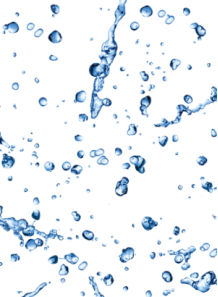Hyaluronic Acid is a naturally occurring substance. Gel-like appearance Inserted between the skin cells Acts as a reservoir for the cells. Protect the structure of skin cells When we get older, the amount of Hyaluronic Acid will decrease. Causing the skin to become dehydrated And wrinkles occur. Using Hyaluronic Acid on the skin can strengthen the skin to be more hydrated. And reduce wrinkles that may occur
Hyaluronic Acid products are powdered. Extracted by the process Biotechnology With a type of bacteria
The company sells 12 types of Hyaluronic Acid.
1. Size Small (Molecular Weight: Average 10,000 Daltons) Can be absorbed into the skin. Provides deep moisture to the skin. But does not cause a gel texture And cannot be coated
2. Standard size ( Molecular Weight: Average 1,000,000 Daltons) Can't be absorbed into the skin. Moisturizes the epidermis. Cause a little gel formation Slightly coated
3. Size Large ( Molecular Weight: Average 2,000,000 Daltons) Can't be absorbed into the skin. Moisturizes the epidermis. Cause gel well Good coating
4. Liquid Type Double Hyaluronic Acid Caused by a combination of Nano size and Standard size, it is easy to use. And can provide moisture for both the lower and upper layers of the skin
5. Cationic powder type Through the process of causing a positive charge Can settle on the skin or hair, can be used in a rinse formula. Such as face wash, shampoo, conditioner
6. Elastomer type Gel texture With the linkage characteristics of each of the larger molecules Resulting in a very long and long lasting moisture retention
7. Japan type The same grade used in most of the Hyaluron Serum products sold in Japan.
8. Type 4D Hyaluron It is a thick gel texture consisting of 3 molecular sizes of hyaluron and cationic hyaluron so it can perfectly nourish the skin. From both the outer and the inner
9. Type 8D Hyaluron It is made up of four molecules of hyaluron and cationic hyaluron and cross-polymer hyaluron and acetylated hyaluron (also known as super-hyaluron)
10. Acetylated (also known as super-hyaluron) Has the maximum absorption into the skin. When compared with other types of Hyaluron.
11. Oil dispersion type (oil-dispersible) Can be blended in oil-based formulas such as lipsticks, lip balms, and most make-up products as they are oil-based.
12. China type It is a grade that focuses on cost-effective, low-cost formula with standard quality.
If you want to increase the efficiency of moisturizing. You can choose Hyaluronic Acid Standard Molecule or Hyaluronic Acid Large Molecule Together with Hyaluronic Acid Nano Molecule as Small Molecule will penetrate deeper into the skin. And moisturize the deep, but the Standard Molecule moisturizes the shallower. Makes it possible to provide moisture throughout
Always use a preservative such as Phenoxyethanol. Because if no preservatives are added Bacteria will destroy the hyaluronic molecules, causing the resulting gel texture. Loses its viscosity in a matter of days
Hyaluron concentration level Recommended to use (Combined between Standard and Nano type)
Very dry skin 0.3-0.5%
Dry skin 0.1-0.3%
Normal skin or skin dehydrated 0.05-0.1%
If you are not comfortable with the process of dissolving the hyaluron powder in water, you can choose to use it. Liquid Hyaluron Which can dissolve into water immediately
Usage: For all kinds of cosmetics In the form of a gel, serum, lotion or cream, can be mixed in water to rinse your mouth. To treat and prevent oral ulcers (ulcers)
Mixing method:
If there is no blender
Mix before any liquid mixture. But after all dry powder ingredients, put the powder on water (water-phase), cover and shake vigorously for 1-3 minutes, then refrigerate for at least 3 hours. To dissolve the powder Take it out to see the texture of the product. And continue chilling Until I can notice that the powder will dissolve completely There is no sediment or any powder floating on it. So that hyaluronic acid does not lose its quality pH must be between 3.0-9.0 And the temperature should not exceed 70 degrees
In the case of a blender
Blend the water at a minimum speed. 1,000 rpm Then gradually sprinkle the Hyaluronic Acid powder on the surface of the water little by little, continue blending until combined
Rate of use: Cosmetics 0.1-0.5% (recommend 0.1%)
Product characteristics: White Powder (Molecular Weight: Average 10,000 Daltons, in the range 8,000-15,000 Daltons)
Solubility: Can dissolve in cold water (Please use the method above to dissolve)
INCI Name : Hydrolyzed Hyaluronic Acid



